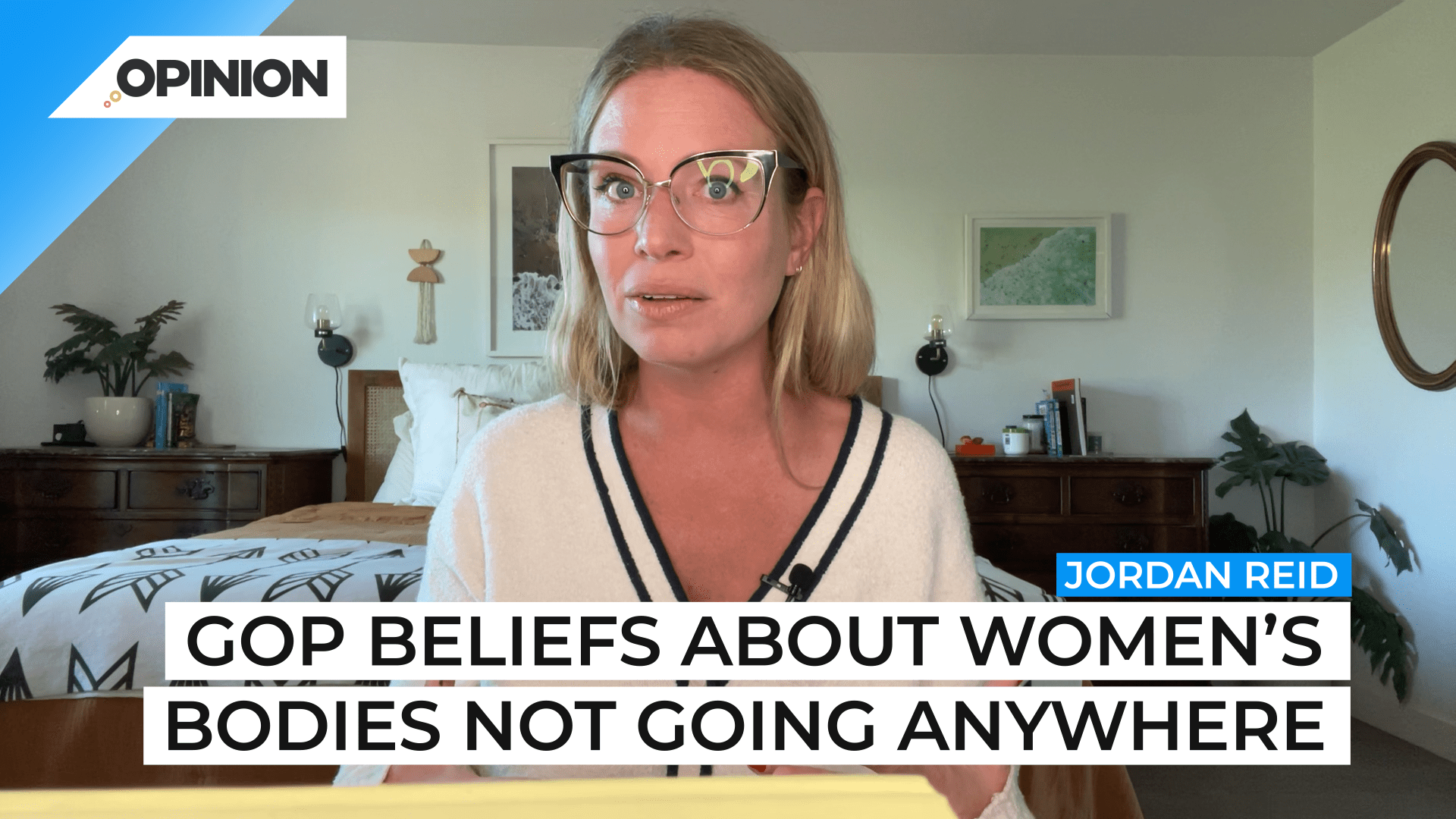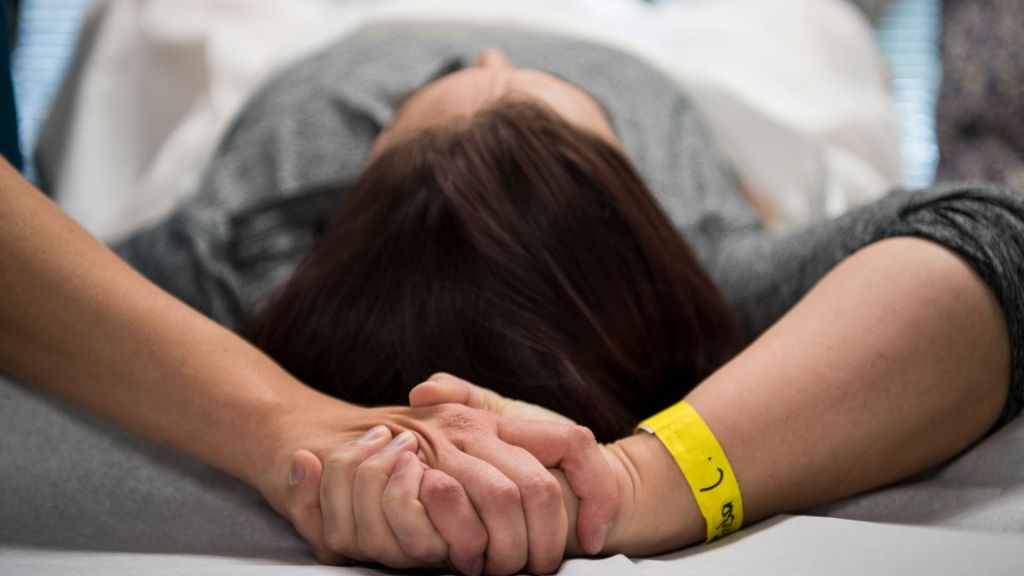
Commentary
-
Our commentary partners will help you reach your own conclusions on complex topics.
What do Lindsey Graham and Chrissy Tiegen have in common? Very, very little – except they’re both on my mind today. Chrissy Tiegen recently came under unsurprising but still wildly demoralizing online fire because she “came out” as saying that what she underwent when she tragically lost her child two years ago was not, as she initially believed, a miscarriage, but rather an abortion. To, quote, “save her life for a baby that had absolutely no chance.”
Where does Lindsey Graham factor into this? He recently introduced a bill prohibiting abortions after 15 weeks at the federal level. Nation-wide.
Now, this bill will not pass – right now, anyway – but what this signals is devastating to me both generally, as a woman who believes in her right to her own body, and specifically, as a woman who has also lost a baby, and who would have, like Tiegen, have undergone an abortion had that option been presented to me.
I’ve discussed my ectopic pregnancy here before, but here’s what makes it pertinent to this conversation: I did not end up having an abortion, because I was misdiagnosed. I ended up having a life-threatening ruptured fallopian tube, and had to have emergency surgery to remove both the fetal tissue and part of my own reproductive organs.
So *would* I have had an abortion? Would I have removed fetal tissue with absolutely zero chance of sustained life in order to prevent severe health consequences to myself? Absolutely.
If you want to put it in a more selfless context, which I shouldn’t have to, but sure – would I have had an abortion to save my own life and prevent my two existing children from potentially growing up without their mother? Yes. And it shouldn’t be up to the state to decide just how much risk I’m willing to take with my own – and my children’s – lives. That’s my choice, if I want to risk my life or not.
Not according to Lindsey Graham. Granted, his bill includes exceptions for rape, incest, and pregnancies that threaten maternal health, but my question to Graham would be how, precisely, he defines maternal health. What risk is risk “enough”?
I’ll tell you right now, if I were – as an example – forced to carry a baby to term that had no chance of survival simply because my body would be able to physically survive the delivery, saying that my health – my mental health, and my ability to function as a caregiver for my children – would be at significant risk would be a vast understatement.
Even Senate Minority Leader Mitch McConnell last week distanced himself from Graham’s bill, saying “most of the members of my conference prefer that this be dealt with at the state level.” Will a 15-week ban pass on a national scale? Probably not.
But the willingness of Republican congresspeople to suggest – increasingly – that their beliefs about women’s bodies are more important than the beliefs – and health, and agency – of women themselves…that’s not going anywhere, unless we use our voices in November to tell them where they can stick their policies.
-
RFK Jr.’s war on psychiatric meds risks decades of progress
On Feb. 18, during his first meeting with staff, Health and Human Services Secretary Robert F. Kennedy Jr. stated that he intends to address the possible overmedication of children and the risks of antidepressants — echoing a Trump executive order aimed at reducing childhood chronic disease rates. The order has sparked concerns over youth access… -
Loss of USAID makes America and the world less safe
Elon Musk and President Trump shocked the U.S. foreign policy community and America’s partners around the world with the early and abrupt closure of USAID, the United States Agency for International Development. USAID was a cornerstone of U.S. foreign policy and consistently received bipartisan support from Congress. Experts warned that the decision puts millions of… -
Trump’s ‘Gulf of America’ renaming is mere political spectacle
Aboard Air Force One, en route to the Super Bowl in New Orleans, President Trump held a news conference. As the flight entered international waters over the Gulf of Mexico, he issued an executive order renaming it the “Gulf of America” and declaring Feb. 9 as “Gulf of America Day.” The order, titled Restoring Names… -
President Trump politicizes DC plane crash as Americans mourn
Sixty-seven people died when a Black Hawk helicopter crashed into American Airlines Flight 5342 as it came in for a landing at Reagan National Airport on the night of Jan. 29 outside of Washington, D.C. Investigators are still examining the accident and putting details together, but believe that the helicopter was flying at too high… -
Project 2025 is Trumpism on steroids
President Trump has already taken several actions that align with Project 2025, a far-right blueprint for Trump’s second term developed by the Heritage Foundation. Among other intiatives, his administration has moved to eliminate DEI programs, reinstate service members dismissed for refusing the COVID-19 vaccine, and revive “Schedule F,” a policy making it easier to fire…
Latest Opinions
-
 Getty Images
Getty Images
NCAA Tournament: Which men’s teams are on ‘bubble watch’?
-
 Getty Images
Getty Images
NFL scouting combine: How much faster can these players run?
-
 Getty Images
Getty Images
James Cameron seeks New Zealand citizenship following ‘horrific’ Trump re-election
-
 Getty Images
Getty Images
San Francisco DA Charges 11 in SNAP fraud scheme involving $4M
-
 Getty Images
Getty Images
California’s minimum wage increase led to job losses, higher prices: Study
Popular Opinions
-
In addition to the facts, we believe it’s vital to hear perspectives from all sides of the political spectrum.






